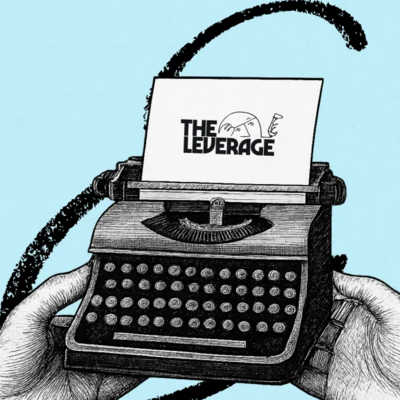
On May 24th, Steve Jobs attempted a beheading.
In an ill-fated coup effort, Jobs tried to rally Apple insiders to depose the reigning CEO of Apple, John Sculley. The primary sin of this Pepsi marketing executive turned Macintosh monarch? Holding Jobs accountable for hitting only 10% of forecasted sales in his division and missing product deadlines. In an April board meeting, Sculley had pushed to strip Jobs of his power and, after some debate, the board consented. Beyond missing the financial forecast, the Apple founder had been a disaster as a manager, with his trademark coarseness of character causing rebellion among his peers. In short, Jobs was unable to get support from fellow Apple leaders.
Despite many in his inner circle advising against it, Jobs went for glory to try and kick Sculley out of the company. Planning to do the deed while Sculley was in China, Jobs convened an executive team meeting on May 24th. Unbeknownst to Jobs, one of the executives he confided in, a Frenchman, betrayed Jobs and told Monarch Sculley what was going to happen. He canceled his trip, appeared at the meeting, and confronted the issue head-on by calling for a vote for who the leader should be.
Sculley won the tally unanimously and Jobs left Apple entirely within 6 months.
This decision by the board is a controversial one in Silicon Valley. On one hand, Jobs’s behavior and poor performance were absolutely a fireable offense. On the other…this was Steve Jobs. Upon his return, he built the most valuable technology company of all time. He entirely altered the paradigm for how humanity interacts with computing devices. But still, his inability to deliver financial results and misunderstanding of his fellow executives’ emotions made his dismissal wholly justifiable.
So, what happened?
Jobs’s transcendent product sense blinded him to the language of power within technology companies: finance. If he had known to say to the board some version of “Q2 deliverables were only at 10% of forecast, but because of our LTV:CAC ratio and percentage of pipeline in mid-market, we should see full quota attainment by Q4,” maybe his problems wouldn’t have been so serious. And again, if he had known how to use finance to placate his peers, in particular with its relation to product roadmapping, he would be able to more directly connect his expenditures to profits. Now, these are just hypothetical numbers and scenarios, but, for better or worse, the ability to confidently discuss numbers lends credibility to an executive who would otherwise have to rely on charisma alone.
You see, working in business without knowing the language of finance is like going to Paris without speaking French. Sure, you might be able to bumble around the city, but to truly navigate it successfully you need to speak the native tongue. It allows you to talk with the citizens (departments) across the city (company).
Perhaps you have experienced something like this. You are trying to build something you know is meaningful when some VP of Finance shuts you down. Or maybe you’re talking to an investor passing on investing in your startup. In either case, their feedback to your idea is a flurry of acronyms, adjectives, and abbreviations both esoteric and stupid-sounding. Average Revenue Per User? ARPU (are-poo)? Come on. It sucks because you can’t respond effectively, and in some ways, it feels deeply embarrassing. You know you should know this stuff but haven’t ever had the chance to learn it.
Finance is not what determines a company's success (the ability to actually make and sell compelling products does that), but it is what determines the ability to gather resources to make the products. And really, if finance alone becomes the motivation, the company always fails in the end. Sculley ran Apple into the ground, almost destroying an iconic organization. Jobs, upon later reflection, didn’t hesitate to push Sculley under the bus.
“My passion has been to build an enduring company where people were motivated to make great products. Everything else was secondary. Sure, it was great to make a profit, because that was what allowed you to make great products. But the products, not the profits, were the motivation. Sculley flipped these priorities to where the goal was to make money. It’s a subtle difference, but it ends up meaning everything.”
And Jobs is right! It is hard for me to think of a company that succeeded because it had sufficiently advanced methods of cash arbitrage. However, the best companies are able to combine a killer product with a killer financial profile. Apple offloaded almost all of its manufacturing (and a portion of their R&D) to off-shore manufacturers. This allows them to treat manufacturing as a variable cost, scalable up and down. The person who made this work wasn’t even Jobs! It was Tim Cook. Coincidentally, when Jobs died Apple was valued at ~300B. Cook turned that into a monster valued at ~$2.7T. Or said another way, Cook has added 9 more Apples in market cap in the 11 years since Jobs’s death.
Jobs is worthy of praise for what he did, but Cook did something equally spectacular—and he did it with finance.
Finance is the language you need to know to play the game of business
The Only Subscription
You Need to
Stay at the
Edge of AI
The essential toolkit for those shaping the future
"This might be the best value you
can get from an AI subscription."
- Jay S.
Join 100,000+ leaders, builders, and innovators

Email address
Already have an account? Sign in
What is included in a subscription?
Daily insights from AI pioneers + early access to powerful AI tools







.08.31_AM.png)


Comments
Don't have an account? Sign up!
Loved the perspective in the article agreeing with most of it except for the claim Cook did something "equally" spectacular with finance. The momentum Cook successfully created is because of the 1999-2011 era of Apple full of innovation. It's almost like innovation vs. optimization in which I'd always favor innovation. Steve Jobs actually has a great interview on this (https://www.youtube.com/watch?v=OzZB5pZTslE&t=745s&ab_channel=SirMix-A-LotRareMusic) and Apple is ironically turning into a company that it cannot truly innovate anymore other than the incremental products we keep seeing in the years.
@evan Would you consider making the recordings available, even if paid, for those that can't attend in realtime?
When is the course launching?